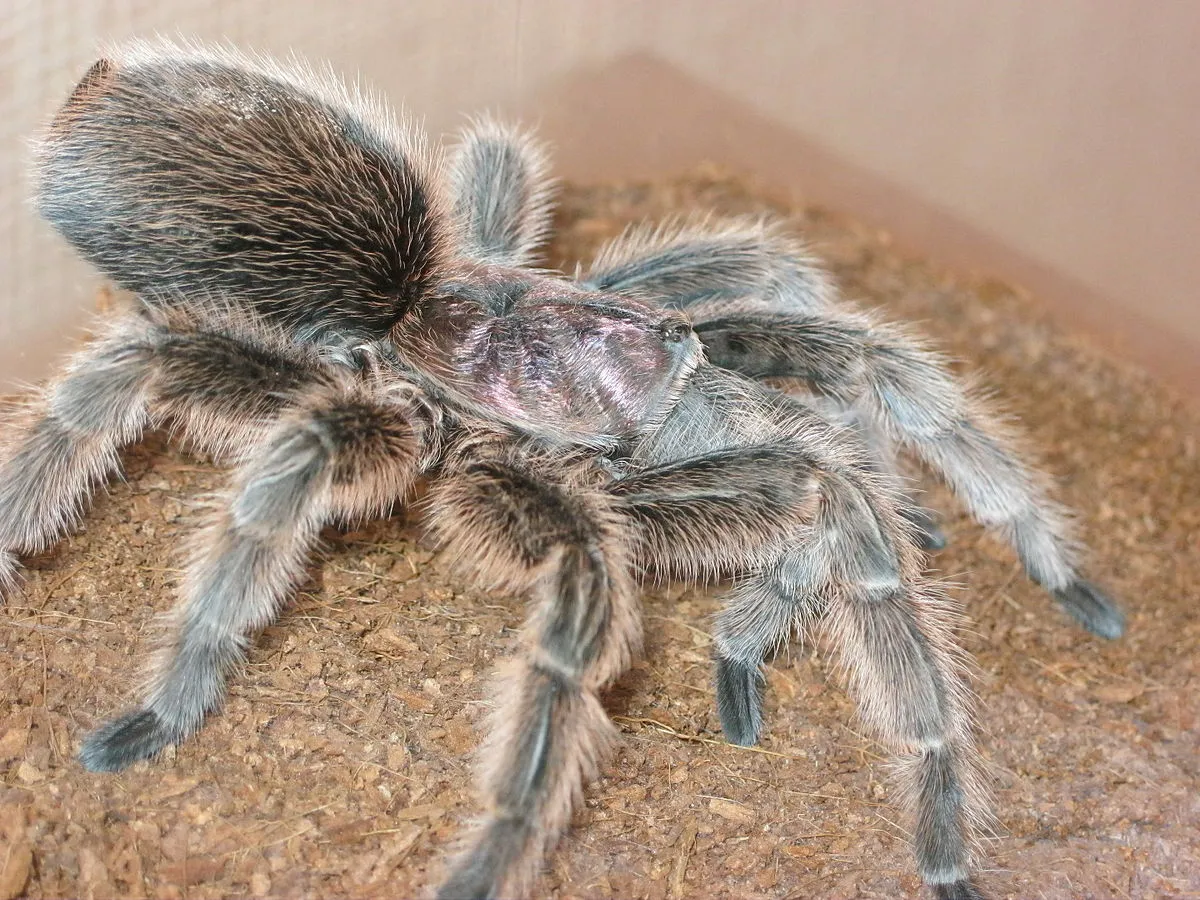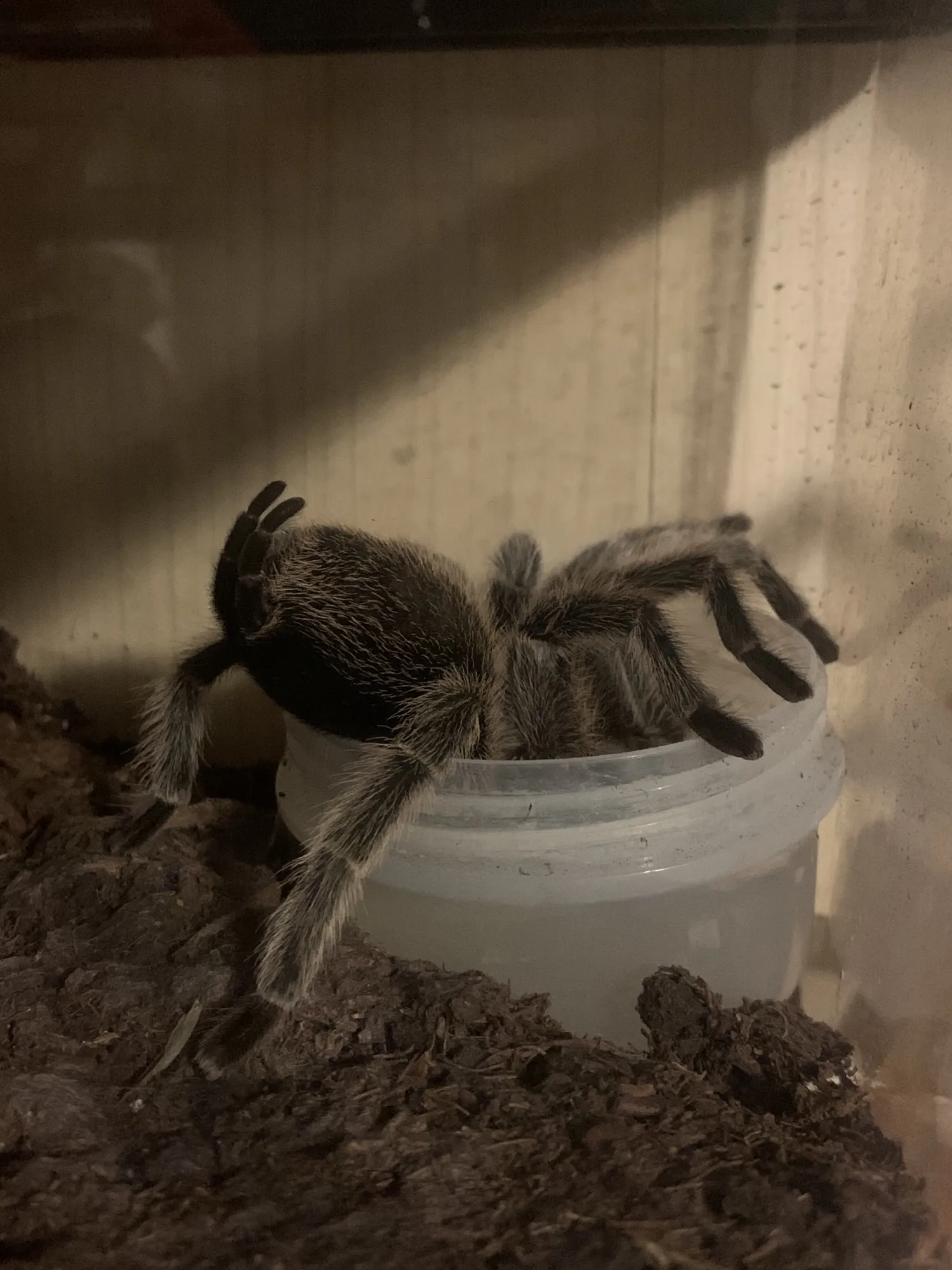What is the Average Rose Hair Tarantula Weight?
The rose hair tarantula, scientifically known as Grammostola rosea, is a popular pet tarantula. One of the common questions owners have is regarding their weight. While the weight can vary, understanding the general range provides valuable insight into their health and well-being. Adult female rose hair tarantulas generally weigh between 50 to 90 grams, with some larger specimens potentially exceeding this range. Males, on the other hand, tend to be smaller and lighter, usually weighing between 30 to 60 grams. These are averages, and individual tarantulas can vary based on several factors. Regular monitoring of your tarantula’s weight can help you identify potential health issues or changes in their condition. The average weight provides a baseline for comparison, and any significant deviations warrant further investigation to ensure your pet’s health. It’s important to keep in mind that these spiders are mostly made of exoskeleton, so weight is not the only indication of its health, but one of the important ones.
Factors Influencing Rose Hair Tarantula Weight
Several factors influence the weight of a rose hair tarantula, and understanding these can help you better care for your pet. One of the most significant factors is the tarantula’s age and sex. Females, which have a longer lifespan and grow larger, generally weigh more than males. Diet also plays a crucial role; a well-balanced diet with appropriate feeding frequency supports healthy growth and weight. The availability of food and the type of food offered can greatly impact the tarantula’s weight. Environmental conditions, such as temperature and humidity, can also affect their metabolism and growth rate. A comfortable environment with the right conditions allows them to thrive and maintain a healthy weight. Finally, the individual genetics of the tarantula contribute to its size and weight. Some tarantulas may naturally be larger or smaller than others, even within the same species and under similar conditions. Careful monitoring of these factors can help you ensure your tarantula’s optimal health and weight.
Diet’s Impact on Rose Hair Tarantula Weight

Diet is a critical element in maintaining a healthy weight for your rose hair tarantula. Providing a nutritious and balanced diet ensures they receive the necessary nutrients for growth and overall health. A typical diet for a rose hair tarantula consists primarily of insects, such as crickets, mealworms, and roaches. The size and quantity of the insects you offer depend on the tarantula’s size and age. Overfeeding can lead to obesity and potential health problems, while underfeeding can stunt growth and weaken the tarantula. It’s important to adjust the feeding schedule based on their appetite and molting cycle. Offer food every week to every other week for adults. For younger tarantulas, feeding more frequently is typically recommended. Ensure the insects you feed are gut-loaded with nutritious food to provide the tarantula with a balanced diet. This approach ensures your rose hair tarantula maintains a healthy weight and thrives.
How to Weigh Your Rose Hair Tarantula
Regularly weighing your rose hair tarantula can help you monitor its health and catch any potential issues early on. The process is straightforward, but it requires a few considerations to ensure the safety of both you and your tarantula. First, you’ll need a digital scale that can measure in grams, which is the most appropriate unit for this task. It’s important to calibrate the scale before each use to ensure accuracy. When weighing your tarantula, gently coax it onto the scale, ideally in a container or on a small platform to prevent it from running off. Be very careful when handling the tarantula to avoid any potential injury. Avoid touching the tarantula directly; instead, gently guide it. Weigh your tarantula periodically, especially after molting or if you notice any changes in its behavior or appearance. Keep a record of the weight measurements to track any significant changes over time. By following these steps, you can easily and safely monitor your tarantula’s weight, contributing to its overall health.
Health Implications of Rose Hair Tarantula Weight
The weight of a rose hair tarantula can reveal a lot about its health, and it is important to know the implications of this. Significant deviations from the average weight range can be an indicator of underlying health issues. For instance, a tarantula that is significantly underweight might be suffering from a lack of food, dehydration, or parasites. On the other hand, an overweight tarantula could be overfed, or it might have a metabolic issue. Weight changes are a good indicator to monitor a tarantula’s health. If you notice a tarantula gaining or losing weight rapidly, it is a good time to inspect it carefully. Weight can also be affected during the molting process; a tarantula’s weight may fluctuate. Weight changes coupled with other symptoms, such as lethargy, loss of appetite, or unusual behavior, warrant a visit to a vet specializing in exotic animals. Being aware of these health implications allows you to take proactive steps to ensure your tarantula’s well-being.
What to Expect with Rose Hair Tarantula Weight Growth

Understanding the weight growth of your rose hair tarantula is vital for responsible pet ownership. As a young tarantula, your rose hair will undergo several molting cycles, during which it will shed its exoskeleton and grow larger. During these molting periods, it may temporarily lose weight. The frequency of molting decreases as the tarantula matures. Adult females typically continue to grow throughout their lives, though at a slower rate, while males often reach their full size and weight sooner. Regular weighing helps you track the growth of your tarantula over time. Observing any significant changes in weight, such as rapid gains or losses, can provide clues about the tarantula’s health. Proper nutrition, a suitable environment, and consistent monitoring of weight contribute to a healthy growth trajectory. Being prepared for weight fluctuations during molting and understanding the growth patterns of your rose hair tarantula helps you provide the best care possible throughout its life. This way, you can ensure your tarantula thrives in its environment.
